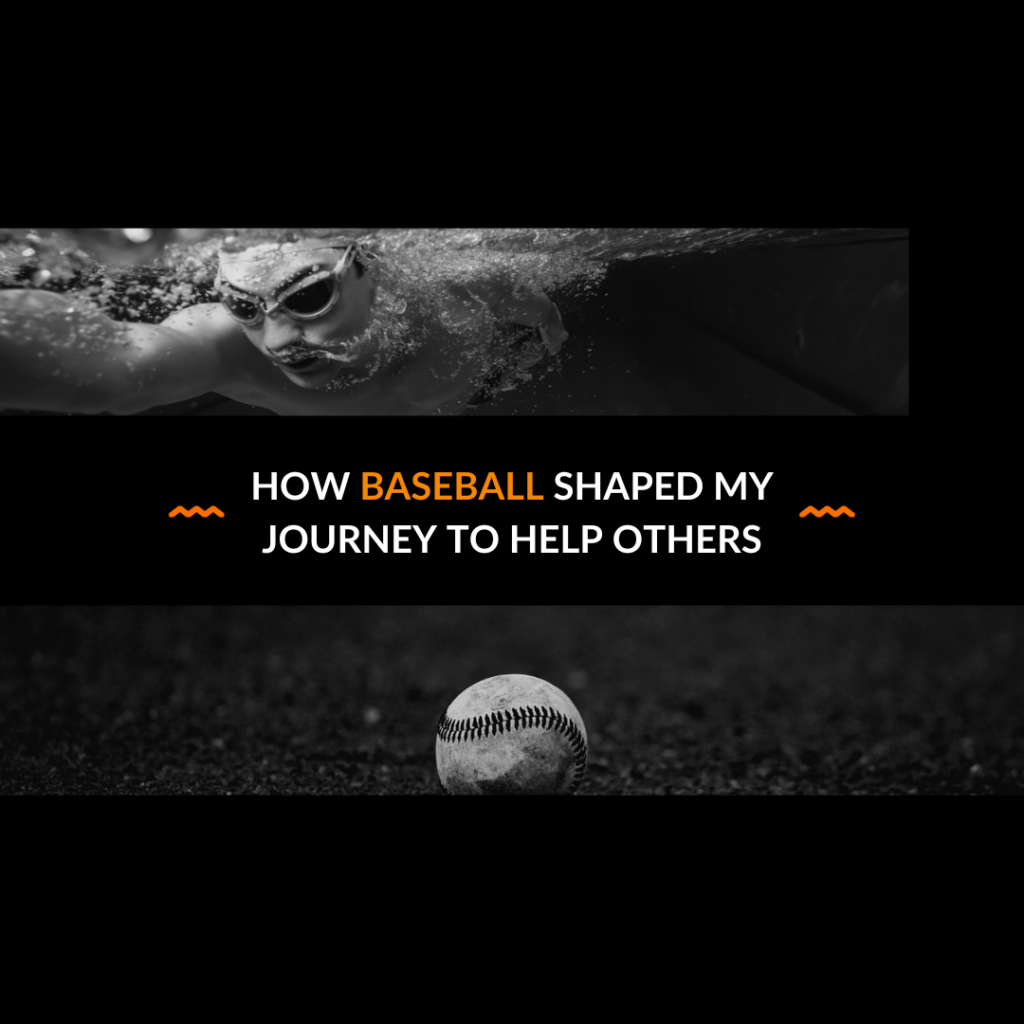Self-assessment is a critical element in getting better at anything that you do. You must objectively look at the good, bad, and the ugly. I am constantly trying to improve as a mental performance coach.
My greatest strength is empathy. I can put myself in others’ shoes, whether it is an athlete, performing artist, parent, or coach. I must see the world through their eyes to serve them best. My experiences inform my ability to empathize with young athletes.
The primary reason why I got into sport psychology is my experience as a young athlete. Sports was my life as a kid, but baseball was my first love. One three-week period of my baseball career was my biggest inspiration to become a mental performance coach to young athletes. I struggled through a horrific 0-for-20 slump at the plate. I still recall it as one of the most challenging periods of my life.
Unfortunately, my career ended after high school… or so I thought. Fast forward 10 years or so.
I was working in New York City early in my career as a tax consultant. (Yes, I know it sounds riveting). My best friend, then just a co-worker, asked me, “Do you want to play baseball?”
REAL baseball? Not Softball?
Yes, real baseball with wooden bats in Central Park. I couldn’t have said yes fast enough.
At that point, I hadn’t picked up a bat or glove in at least five years since I went to an open tryout in college. I jumped at the chance to play again.
Choosing to play baseball again was one of the best choices I ever made in my life. I made great friends. I traveled to cool places. I played on beautiful fields. I competed against former college and professional players. I am grateful for all of it.
Fast forward another 15 years later.
I ripped a hard single to left field during a game near my home in New Jersey. It would come in the last baseball game I ever played. I was experiencing neurological symptoms that would ultimately lead me to my second neck surgery months later. My body was giving out at 44 years old.
Over the 15 years that I played baseball as an adult to my final hit ever:
I had two children
I moved from NYC to New Jersey
I held five different jobs
I had my first cervical spinal fusion surgery
I decided to change my career and went back to school for my master’s degree in sport psychology.
Imagine a grown man with all of these experiences and responsibilities staring up at the ceiling at night thinking about baseball. That’s the one thing that kept me up at night.
Why did I swing at that pitch?
I should have crushed that ball.
How can I fix myself?
In retrospect, this sounds crazy to ME. I just loved it so much. It made me feel whole again as a person. I was able to get closure on the sadness, anger, and regret about my baseball career ending earlier than I hoped.
Most importantly, it led me to where I am right now. Playing baseball again led me to become a mental performance coach because I wanted to be that person that I wished would’ve had my back in the spring of 1993.
My superpower is empathy. I’ve got a ton of flaws and areas of improvement, but I’m skilled at understanding young athletes. A big reason why is those hundreds of games and thousands of at-bats that I experienced over 15 years.
I understand how it feels to fail.
I understand how hard it is to make adjustments for improvement.
I understand how to use those experiences for the benefit of others.
Most importantly, I also understand that this is no longer about me. It’s about sharing my experience and sport psychology expertise to help my clients find the solutions THEY need.
Find a mental performance coach that sees the world through your eyes.

